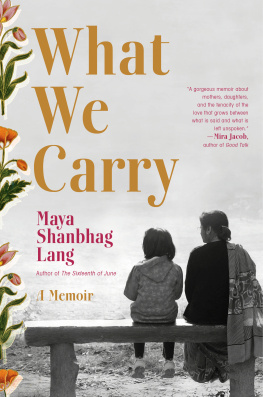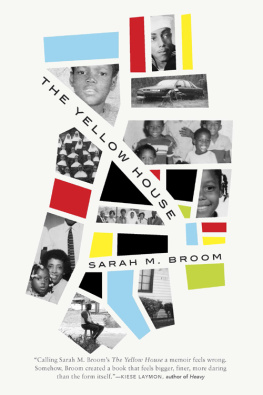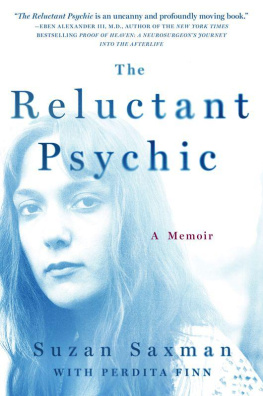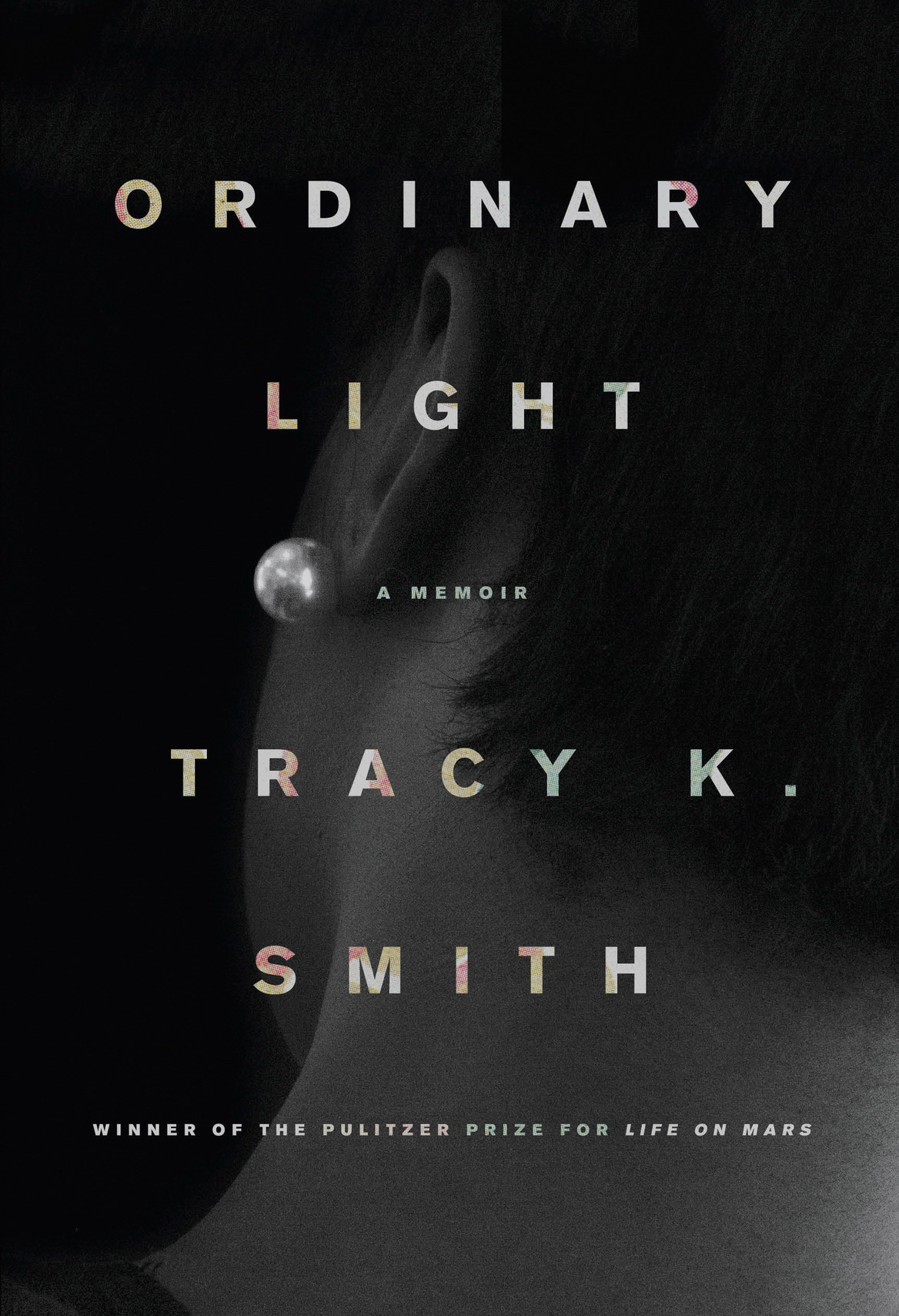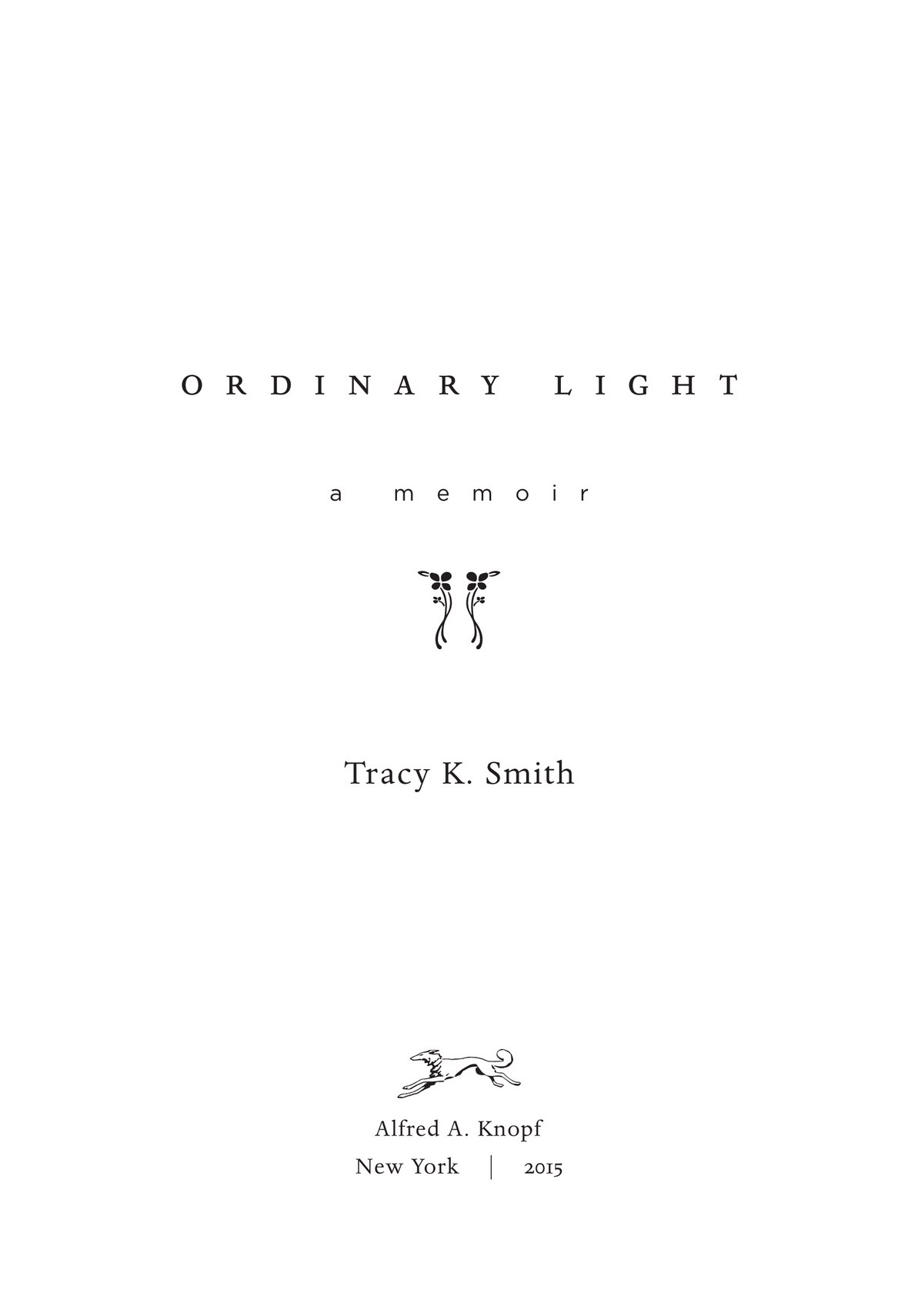ALSO BY TRACY K. SMITH
Copyright 2015 by Tracy K. Smith
All rights reserved. Published in the United States by Alfred A. Knopf, a division of Random House LLC, New York, and in Canada by Random House of Canada Limited, Toronto, Penguin Random House companies.
Knopf, Borzoi Books, and the colophon are registered trademarks of Random House LLC.
But something deep and watchful in the child knows that this is bound to end, is already ending. In a moment someone will get up and turn on the light.
PROLOGUE: THE MIRACLE
S he left us at night. It had felt like night for a long time, the days at once short and ceaselessly long. November-dark. Shed been lifting her hand to signal for relief, a code wed concocted once it became too much effort for her to speak and too difficult for us to understand her when she did. When it became clear that it was taking everything out of her just to lift the arm, we told her to blink, a movement that, when youre watching for it, becomes impossibly hard to discern. Was that a blink? wed ask when her eyelids just seemed to ripple or twitch. Are you blinking, Mom? Was that a blink? until finally, shed heave the lids up and let them thud back down to say, Yes, the pain weighs that much, and I am lying here, pinned beneath it. Do something.
Did we recognize the day when it arrived? A day with so much pain, a day when her patience had dissolved and she wanted nothing but to be outside of it. Pain. The word itself doesnt hurt enough, doesnt know how to tell us what it stands for. We gave her morphine. Each time she asked for it, we asked her if she was sure, and she found a way to tell us that she was, and so we were surewerent we?that this was the end, this was when and how she would go.
I was grateful for my brother Conrad and his wife, both doctors. None of the rest of us would have known how to administer the drug in such a way as to say what we needed it to sayTake this dose, measured out, controlled, a proven means of temporary reliefrather than what we knew it actually meant. Grateful, and hopeful that the training might stand guard against the fact that the patient was our mother.
The nurse who came by each day was a cheerful person who knew not to be cheery. Calm, available, knowing, pleasant. But she stopped short of chipper. She must have been instructed not to bring that kind of feeling into a home that was preparing for death. Not to bring hope. Instead, she brought mild comfort, a commendable gentleness that helped to rebuild something inside us. The nurse cared for our mother the way we sought to care for our mother: with no signs of struggle, no stifled rage at God and the unfair world, no tears. In changing our mothers bandages and handling her flesh with such competence and ease, the nurse cared for us, too. Once a day for only an hour at a time, she came and eased our load just enough to get us to the next day when we knew shed come again.
I had sat and read the hospice literature one morning at the dining room table. A binder with information about how to care for the dying at home. It said that as death approaches, the body becomes cool to the touch. The limbs lose their warmth as the body concentrates its energy on the essential functions. Sometimes when I was alone with my mother, Id touch her feet and legs, checking to see how cool she had become. I was both frightened and reassured that the literature was correct, as if her body was saying goodbye to the world, preparing itself for a journeythough thats not it, exactly, for the body goes nowhere, merely shuts down in preparation for being left. I could sense my mother leaving, getting ready for some elsewhere I couldnt visit, and like the cool hands and feet Id check for every day, it both crushed and heartened me. Every day, she spoke less, ate less, surrendered a little more of her presence in this world. Every day, she seemed to be more firmly aligned with a place or a state I believed in but couldnt decipher.
When the dark outside was realnot just the dark of approaching winter, and not just the dark of rain, which wed had for days, tooher dying came on. We recognized it. We circled her bed, though we stopped short of holding hands, perhaps because that gesture would have meant we were holding on, and we were finally ready to let her go. Each of us took a turn saying I love you and Goodbye. We made our promises. Then we heard a sound that seemed to carve a tunnel between our world and some other. It was an otherworldly breath, a vivid presence that blew past us without stopping, leaving us, the living, clamped in place by the silence that followed. I would come back to the sound and the presence of that breath again and again, thinking how miraculous it was that she had ridden off on that last exhalation, her life instantly whisked away, carried over into a place none of us will ever understand until perhaps we are there ourselves.
Its the kind of miracle we never let ourselves consider, the miracle of death. She followed that last breath wherever it led and left her body behind in the old four-poster Queen Anne bed, where for the first time in all of our lives it was a body and nothing more.












